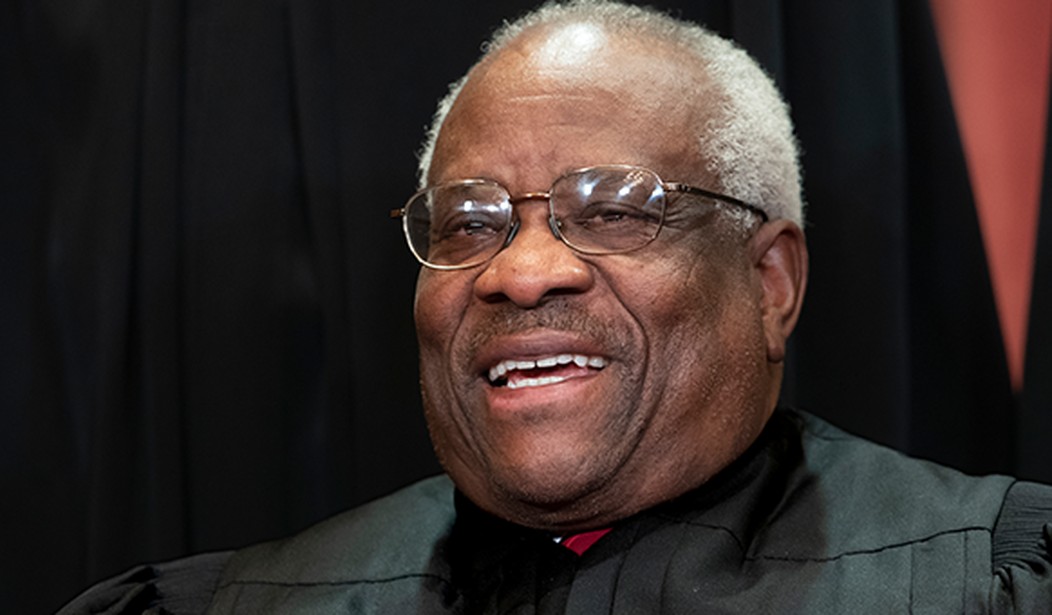Ninety-nine years ago, Democrat Sen. John Walter Smith of Maryland provided $50 of his own -- not government -- money to help erect a cross in his home state.
He was responding to a request from Mrs. Martin Redman, a mother who had lost her son in World War I.
To honor him and the 48 other men from Prince George's County who had lost their lives in the war, she had joined the Prince George's Memorial Committee, whose goal was to erect a memorial not far from the Maryland border with the District of Columbia.
In a thank-you note, she told the senator that her son "lost his life in France and because of that I feel that our memorial cross is, in a way, his grave stone."
Indeed, as the American Legion pointed out in a brief to the Supreme Court (which appended Redman's letter), "the Peace Cross's private builders used a cross to mirror the gravemarkers under which their loved ones were buried abroad."
In an opinion released last week, Justice Samuel Alito noted that "the local post of the American Legion" took over responsibility for building the memorial in 1922, when the committee's fundraising lagged. The memorial -- "a 32-foot tall Latin cross" -- was finished in 1925.
The pedestal, Alito wrote, "features a 9- by 2.5-foot bronze plaque explaining that the monument is 'Dedicated to the heroes of Prince George's County, Maryland who lost their lives in the Great War for the liberty of the world."
"The plaque," noted Alito, "list the names of the 49 local men, both black and white, who died in the war."
Thirty-six years after the cross was completed, Maryland took control of it.
"In 1961, the Maryland-National Capital Park and Planning Commission acquired the Cross and the land on which it sits in order to preserve the monument and address traffic-safety concerns," said Alito.
Recommended
By doing this, did Maryland establish a state religion?
Did it violate the first words of the First Amendment: "Congress shall make no law respecting an establishment of religion"?
In 2015, the American Humanist Association filed suit saying it did. The U.S. Court of Appeals for the 4th Circuit ruled for it. The American Legion appealed to the Supreme Court.
In a decision released last week, where Alito wrote the opinion of the court, Justice Clarence Thomas, in a concurring opinion, spoke to the merits of the case with logic and clarity.
He did so by following the reasoning he has laid out in previous First Amendment cases.
In 2002, for example, the court voted 5-4 in Zelman v. Simmons-Harris to uphold a Cleveland school choice program that allowed participating students to attend religious schools. Opponents argued this violated the Establishment Clause.
Thomas decisively rebutted them.
"The Establishment Clause of the First Amendment states that 'Congress shall make no law respecting an establishment of religion,'" Thomas wrote then. "On its face, this provision places no limit on the states with regard to religion. The Establishment Clause originally protected states, and by extension their citizens, from the imposition of an established religion by the Federal Government. Whether and how this Clause should constrain state action under the Fourteenth Amendment is a more difficult question."
"The Fourteenth Amendment fundamentally restructured the relationship between individuals and the States and ensured that States would not deprive citizens of liberty without due process of law," Thomas continued.
"It guarantees citizenship to all individuals born or naturalized in the United States," he wrote, "and provides that '(n)o State shall make or enforce any law which shall abridge the privileges or immunities of citizens of the United States; nor shall any State deprive any person of life, liberty, or property, without due process of law; nor deny to any person within its jurisdiction the equal protection of the laws."
"When rights are incorporated against the States through the Fourteenth Amendment they should advance, not constrain, individual liberty," Thomas wrote.
"Thus," he concluded in 2002, "while the Federal Government may 'make no law respecting an establishment of religion,' the States may pass laws that include or touch on religious matters so long as these laws do not impede free exercise rights or any other individual liberty interest."
Thomas applied this logic to the Bladensburg Cross.
"The local commission has not attempted to control religious doctrine or personnel, compel religious observance, single out a particular religious denomination for exclusive state subsidization, or punish dissenting worship," he wrote last week in American Legion v. American Humanist Association.
"Instead," Thomas said, "the commission has done something that the founding generation, as well as the generation that ratified the Fourteenth Amendment, would have found commonplace: displaying a religious symbol on government property."
"In an action claiming an unconstitutional establishment of religion," Thomas concluded, "the plaintiff must demonstrate that he was actually coerced by government conduct that shares the characteristics of an establishment as understood at the founding."
People driving by the Peace Cross are only coerced to stay in their lane and keep to the speed limit.
As we learned when the Obama administration tried to coerce Christians into buying abortifacient coverage in their health insurance plans, the greater threat to freedom in this era is not that the government will impose a religion on us but that it will prevent us from faithfully practicing the one we embrace.
Terence P. Jeffrey is the editor in chief of CNSnews.com.
























Join the conversation as a VIP Member